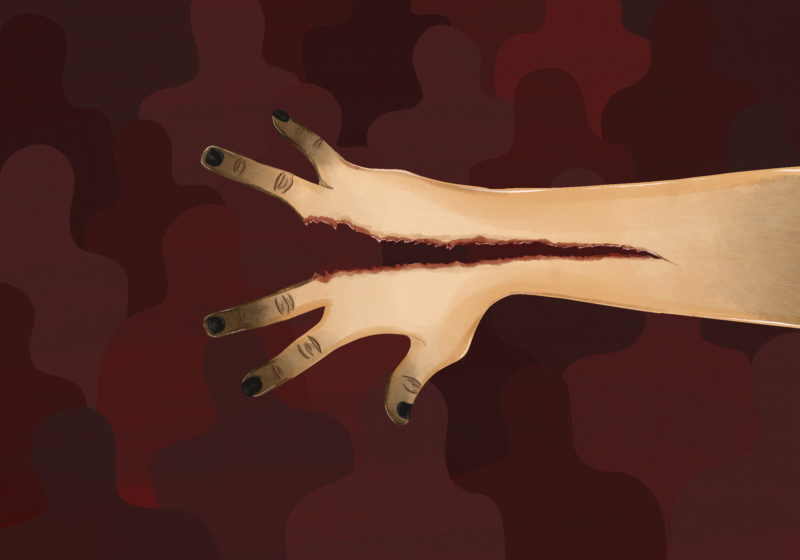If you were to ask me which film genre is the hardest for me to connect with, I’d tell you horror without a doubt. It’s usually these contemporary horror “classics” that people seem to worship and be terrified by that I’m just not scared by. Even when horror films try to use gross out scares and ultra-violence, I find it to be more often than not amateurish, try hard, and in some cases hilarious. And this is something that I continued to feel in the laughably-bad Alex Garland film “Men”.
“Men” follows protagonist Harper (Jessie Buckley), a woman from London who recently left a relationship with a man named James (Paapa Essiedu). To cope with the breakup, she decides to spend time at a cottage in the English countryside. But as she stays there, Harper finds the male-dominated town she’s residing in to be very off-putting and vindictive towards her as she attempts to cope with the vicious end of her relationship with James. The town is populated by a group of two-dimensional misogynists, such as the landlord of the house, as well as the town’s vicar, pub owner, and male police officer (all played by Rory Kinnear).
As you may notice, the plot that I described is very brief and vague. That’s because writer-director Alex Garland somehow added both too much and too little within this theoretical story. The only thing that the film really says is “men are bad,” and Garland decides not to say anything else of substance for the remainder of this “story.” This makes the pacing awful, as you are subjected to the film shuffling from one misogynistic caricature to another, which gets repetitive when most of them are played by Kinnear. The two dimensional dialogue Garland places into the actors’ mouths doesn’t help either; it’s so clichéd in its misogyny that it could actually win the Oscar for Best Original Screenplay.
The “horror” sequences in the film also failed at making me terrified as I left the auditorium. It tries a couple of scares, but they come off as too forced, especially with gore that attempts to make us terrified. And after the infamous last 20 minutes of the film came around, the audience left Hoyt Auditorium laughing profusely, and I was one of them. That is when I realized this could be an experimental form of humor that was pretending to be a horror film. So if you are into gross-out humor, then this is something that could be up your alley (maybe even have a higher score in your book).
The performances are okay, but not as interesting as the violence though. Jessie Buckley seems to be trying, and is able to show a varying amount of emotion through every strange or disturbing thing that comes her way. Rory Kinnear becomes very cringy to watch due to his caricature-like performances in nearly every scene he is in. The faces he makes at Buckley make it obvious that he is evil, and takes away any suspense about whether he is a threat to our protagonist. Another addition to the film is the small role of Paapa Essiedu, whose man-child character contains nothing fascinating or mysterious.
There is nothing really to say about this movie. It has a short runtime, but it seems to go on forever. The gore is more explicit and intrusive, but it becomes more hilarious in a landscape of other horror films that indulge in ultra-violence. The last 20 minutes try to be experimental and interpretive to the audience with hilarious violence, but they are set up by fluff and shallowness that lack any significant payoff to the rest of the film. You might be able to, if you squint, enjoy it as a dumb horror comedy instead.



